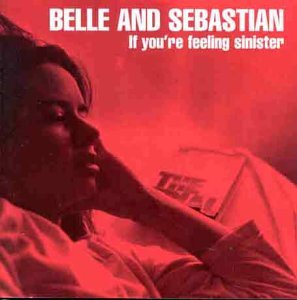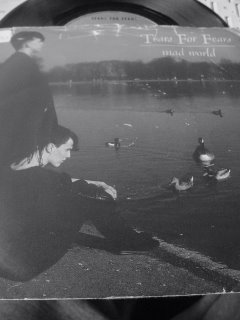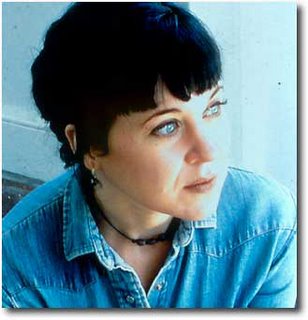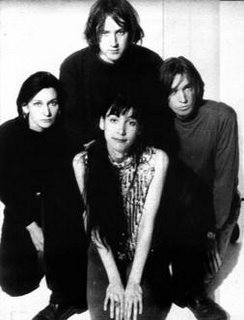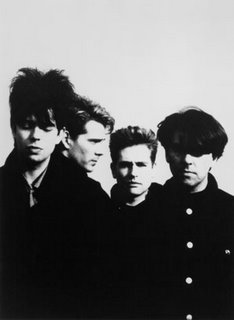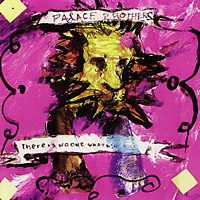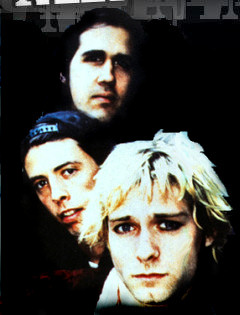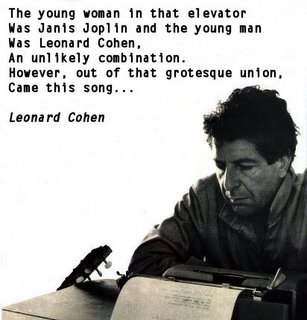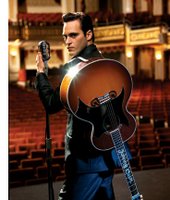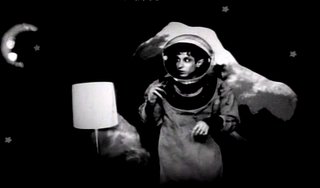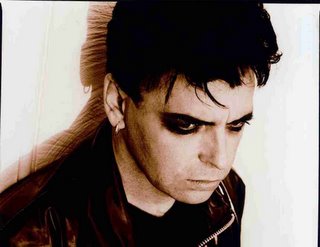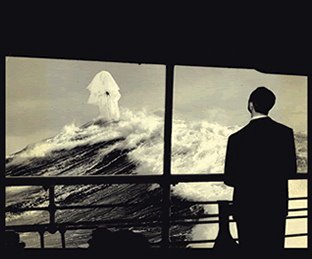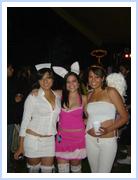
-Será divertido- dije mientras contemplaba el naranja atardecer incendiando la torre de Mexicana.
Sí, claro... me contesté en voz baja mientras daba la última calada al camel.
Sí, sí... divertidísimo, pensé suspirando al tiempo que arrojaba la colilla desde el quinto piso del edificio.
Le di la espalda a la ventana para ver mi imagen en el espejo del pasillo; mi disfraz consistía en saco y camisa negros, con una corbata azul, pantalón de mezclilla y unos converse.
The Stroke Outfit.
Sonó el timbre y la voz de la enfermera flotó desde el baño.
-Es Bere, ¿Le abres, por fa?
Me puse derecho y me acomodé la corbata. Me ví en el espejo de nuevo.
Puta madre.
Abrí la puerta y dejé entrar a una playmate color rosa con unos tacones absurdamente altos.
-Hola
-Hola. Oye, ya es tarde. ¿Y tu disfraz?
-Ya estoy disfrazado
-Ah... ¿y de qué?
Puta madre.En el coche se nos unió un ángel con un escote muy poco católico.
-¿De qué vienes disfrazado?- preguntó el ángel - ¿De semi-burócrata? Ja, ja, ja...
Ja, ja, ja (sigh)En el coche quedé como copiloto, no había discos así que puse el radio. Comenzó a sonar David Bisbal y le cambié al instante a Reactor.
-No la quites...
-Esa canción es la neta...
-Déjala...
Lo bueno de Reactor es que cuando no hay locutores la música suele ser buena y así, casi llegando a la dichosa fiesta de disfraces sonó Perfect Day de Lou Reed.
Una joya como esta debería ser capaz de pararle el corazón a cualquiera, pero a mis acompañantes no les provocó ni un parpadeo.
-Es por aquí.
-No, te digo que es la siguiente calle...
-¿Alguien trae un cigarro?
Lentamente me fui hundiendo en ese piano, en la melodiosa voz de la sarcástica esperanza, en la letra de la canción que calienta el pellejo escrita once años antes de que yo naciera... clavándome, pues.
Luego: la realidad.
El coche se había detenido y la radio se había apagado.
No más Lou Reed esa noche. Habíamos llegado.
El rumor del viento trajo a mis oídos un ritmo rápido, monótono y aburrido. Punchís-punchís barato.
-Hmmm...
-¿Qué pasa, amor? Ya te vas a empezar a enojar por la música y todavía ni entramos.
-Hmmmm...
Gruñendo le tomé la mano y me recordé a mi mismo que venía a acompañar a mi chica. No a socializar, ni a ligar, ni a hacer berrinches. (Tampoco fui a divertirme, como bien me di cuenta después.)
En la entrada a la casa me detuvieron dos guardias de una empresa de seguridad privada.
-¿Eres de La Salle?- me preguntó uno con su manaza en mi tórax.
-No, pero vengo con ella- dije, señalando a la enfermera.
-Ah, ok. Ciento veinte pesos por favor.
!!!!!!Pagué la chingada entrada y me quedé con ochenta pesos para todo el fin de semana.
Por fin entramos al jardín de la casa enorme de las Águilas y a mis espaldas escuché murmumar a los guardias.
-¿Viste a la enfermera?
-Sí, ¿Qué tal la coneja?
-No se la perdono a ninguna. Ja, ja, ja.
Mis nudillos crujiendo y la enfermera calmándome. En mi cabeza comenzaron los acordes de un piano.
Just a perfect day...La fiesta era organizada por el CAM (Consejo de Alumnos de Medicina) ; pura gente bien educada y fina, con comentarios tan atinados e inteligentes como:
-Que chida tu mata... ¿Te explotó el boiler?
-Ah. ¿Vas en la UNAM? ¿No te alcanzó para otra? ¿Eh? ¿Eh?
-Letras, ¿eh?. ¿Y eso para qué sirve?
Al voltear para buscar apoyo con la enfermera, la encontré a quince pasos saludando a un león, un reo, un travesti, y un payaso.
Bueno... alcohol.Me dirigí a la barra.
-¿Hay cerveza?
-No. Tengo tequila (casco viejo) y vodka (oso negro).
And then later when it gets darkWe go home-Dame un vodka, pues.
-Toma. Eh... Son cuarenta pesos
Oh, its such a perfect day-Amor, ¿Me detienes el vaso?
La enfermera bailando sopa de caracol y el pendejo stroke wanna be con su jeta y una vaso en cada mano. Miré a mi enfermera de lejos.
I'm glad I spent it with youCuando la música empeoró de Fey hacia Arjona, decidí beberme el chupe de la enfermera también.
La busqué con la mirada y sólo ví idiotas, idiotas, idiotas y más idiotas. Puños de idiotas.
En el camino al tercer chupe, me encontré a la coneja, que amablemente me invitó un raspado de oso negro. Me presentó a dos hadas.
-Hola, chinito. ¿Me regalas un cigarro?
Amablemente le ofrecí mis camel y de la nada salieron ocho manos que redujeron mi cajetilla a un caparazón muerto. Fue como arrojar una mazorca a nido de cuervos.
Feed animals in the zooCuando empezó a sonar Rebelde, me tomé mi raspado aguado de un trago; ví a la enfermera tomándose fotos con un GI Jo(to)e.
You just keep me hanging onYou just keep me hanging onLlegó el ángel y que me dice, la muy cabrona:
-Eres muy serio, ¿verdad?
I thought I was someone elseSomeone goodA las dos y completamente sobrio, nos fuimos de ese infierno (la bebida estaba mal planeada y el alcohol se acabó en tres horas) para dirigirnos al (praise the Lord) Borrego Viudo.
Al final de su segundo taco, la enfermera se conflictúa y me pregunta:
-¿Estás enojado?, ¿Por qué no comes?, ¿Por qué no me contestas?
Me reí de buena gana y canté mentalmente:
You're going to reap just what you sow,You're going to reap just what you sow,You're going to reap just what you sow,You're going to reap just what you sow,
***Gracias, Lou. Aprendí mucho esa noche.

